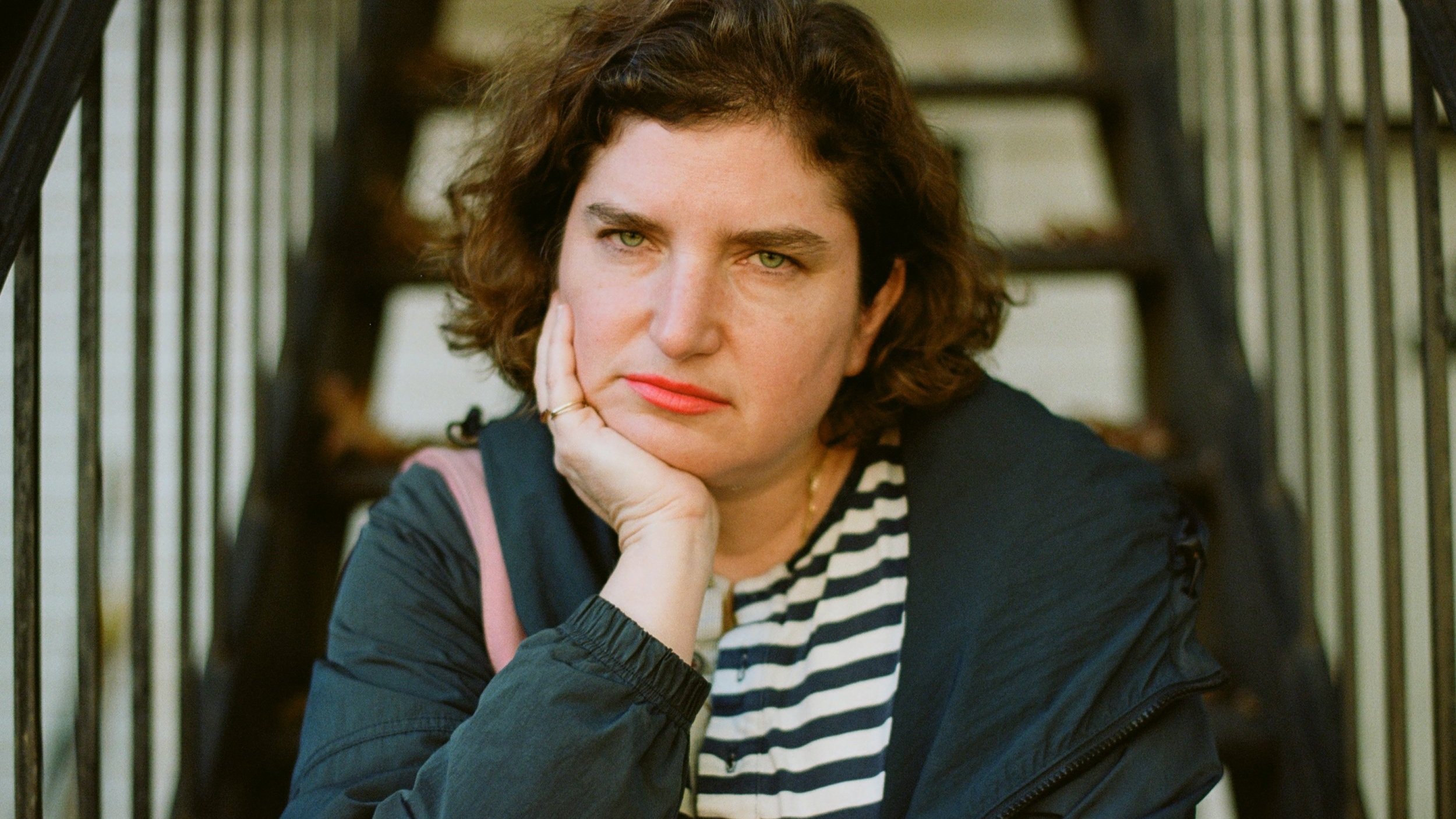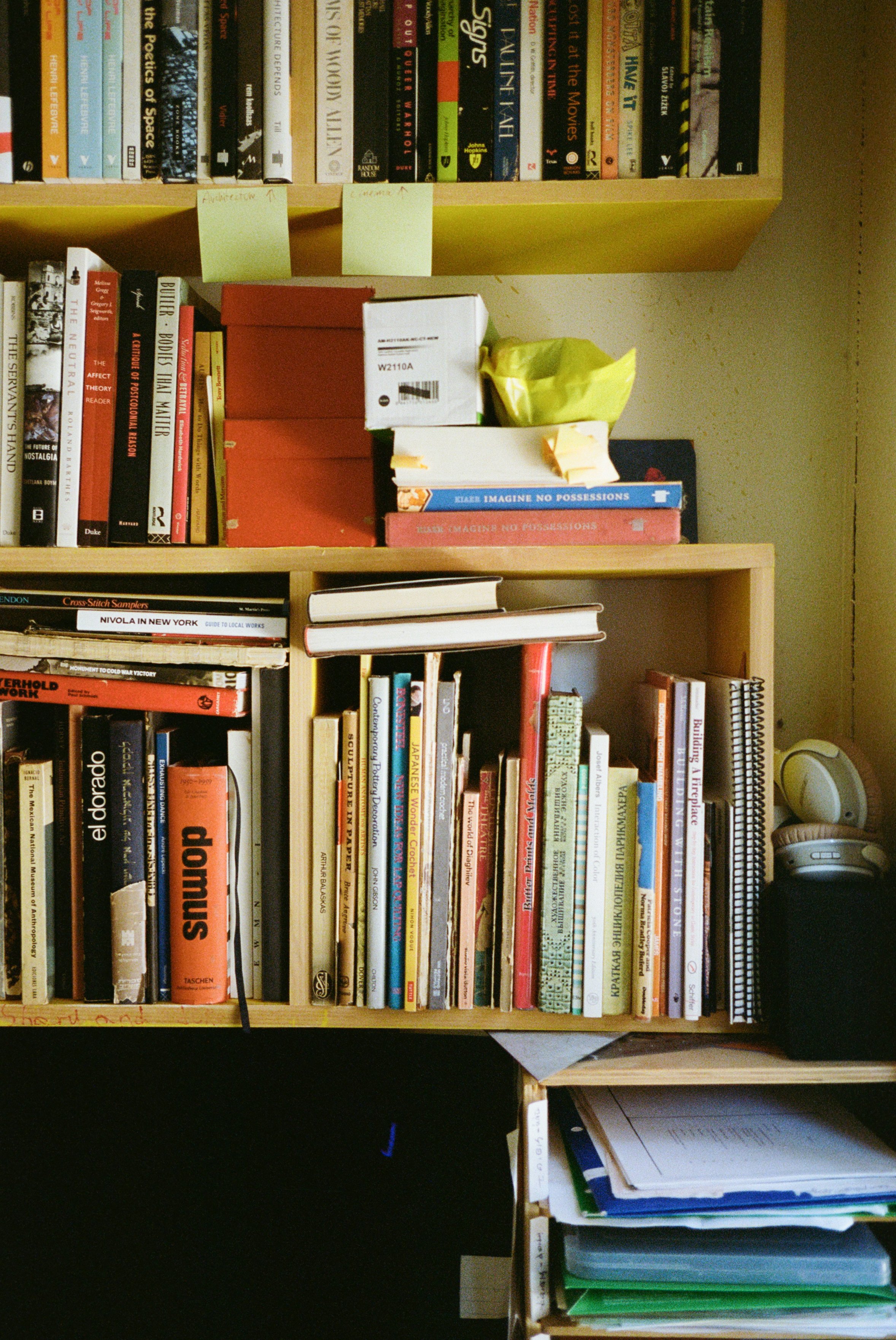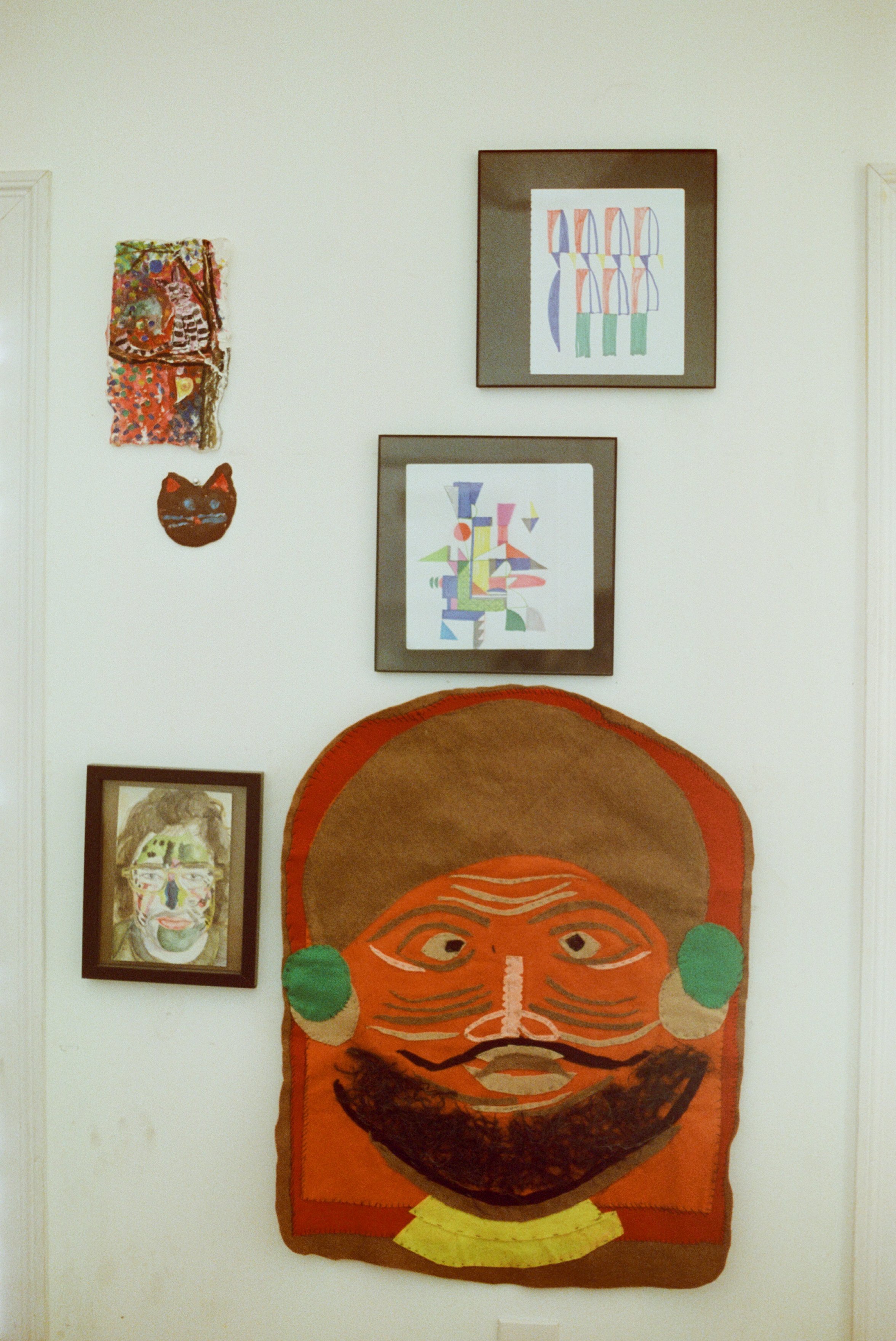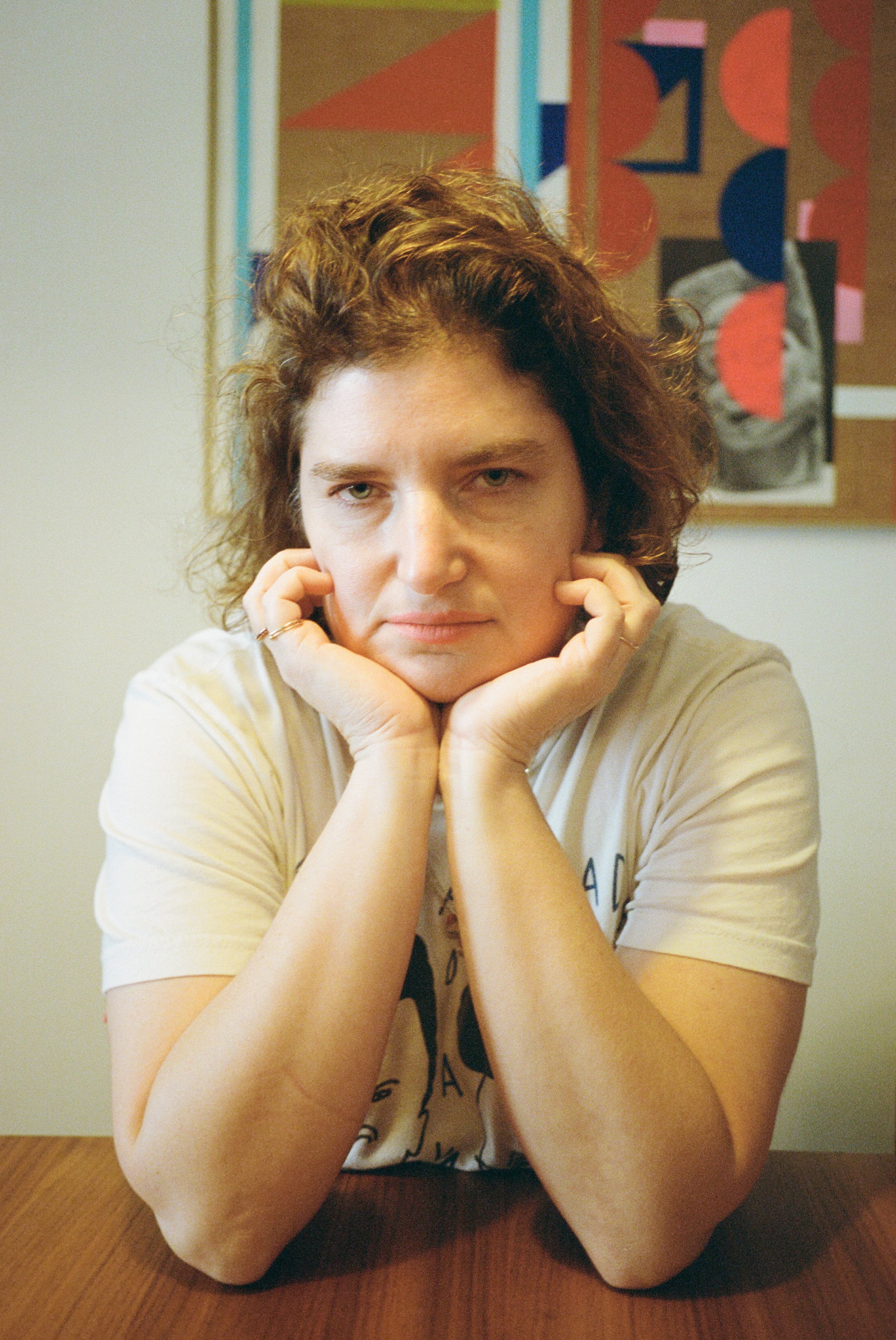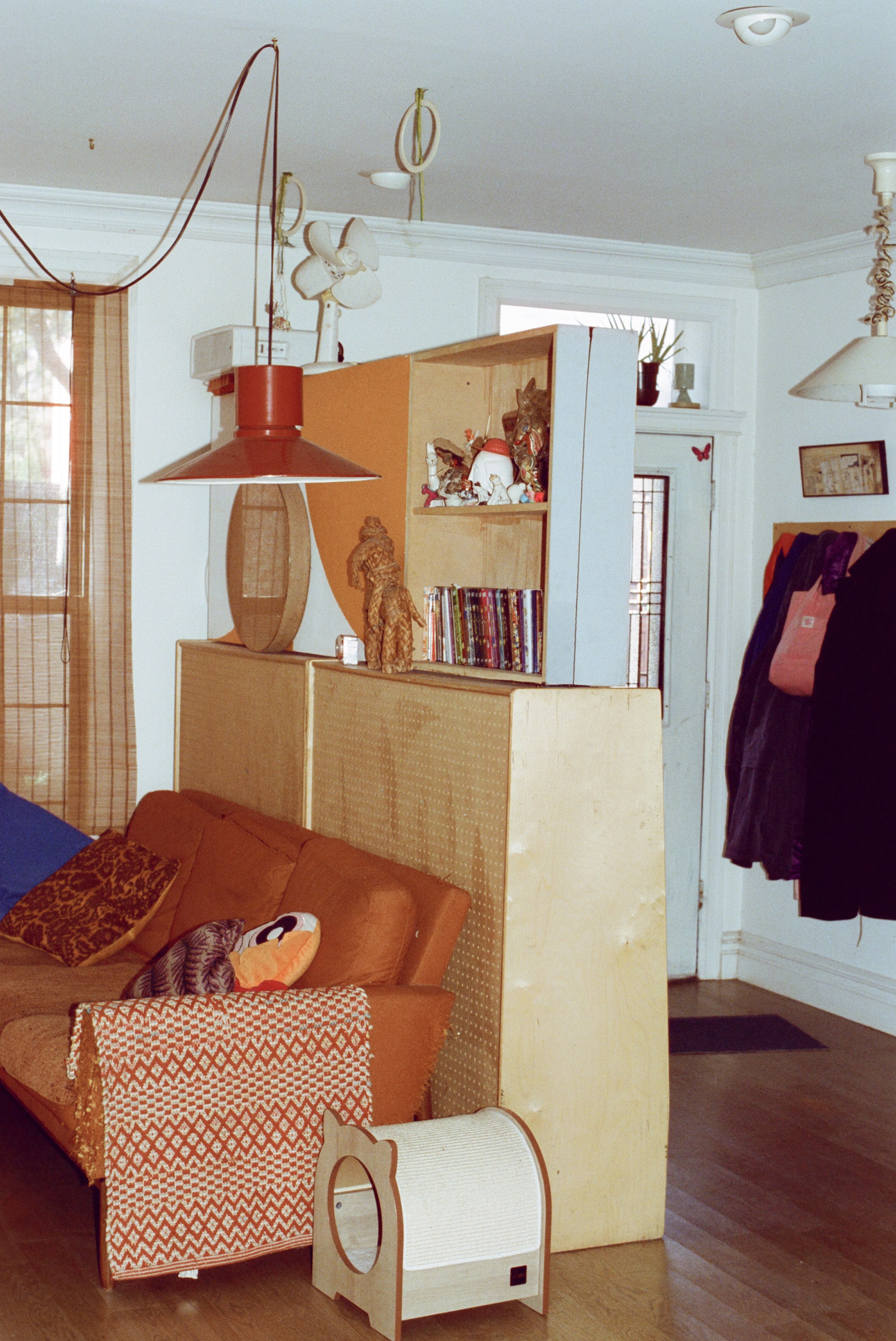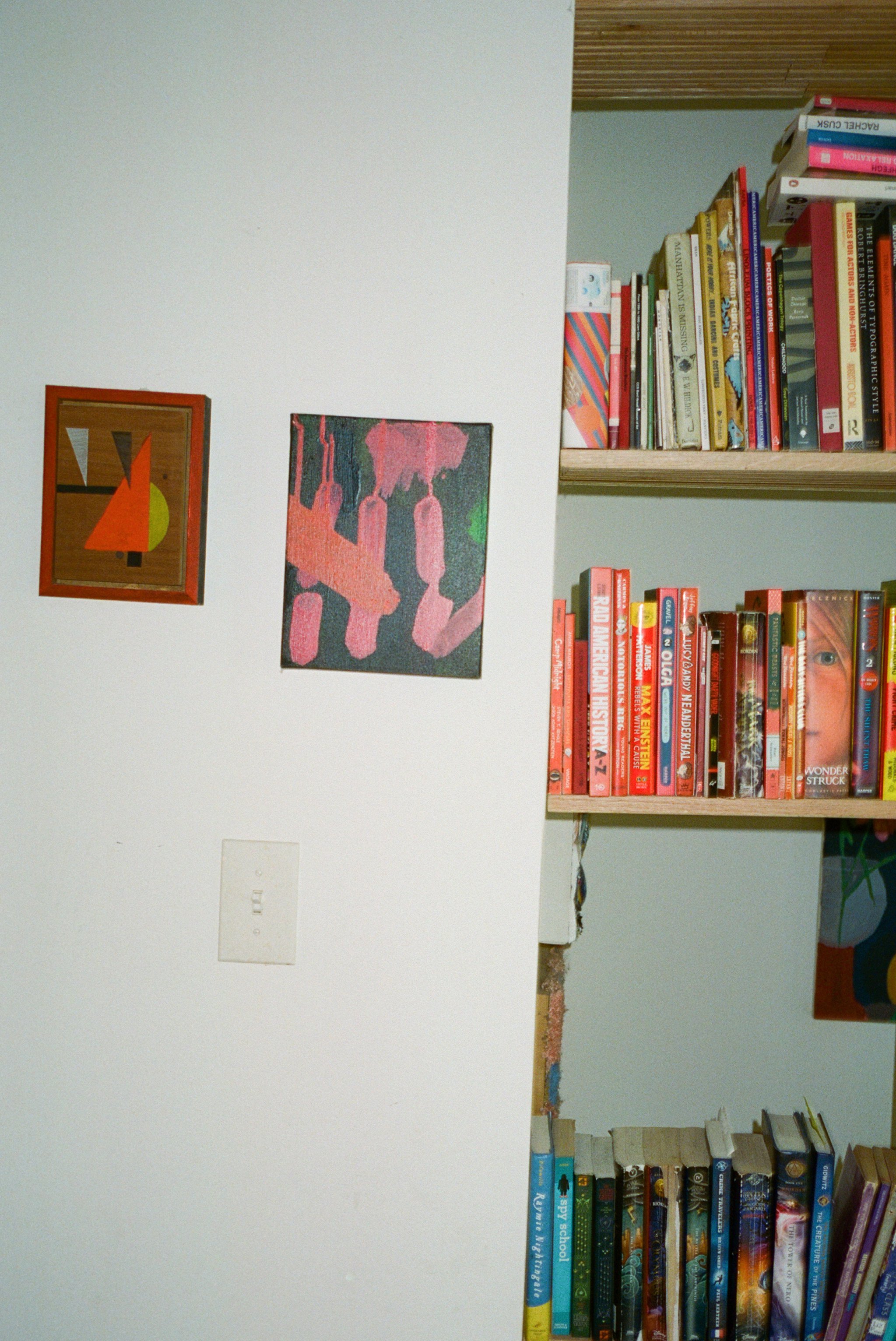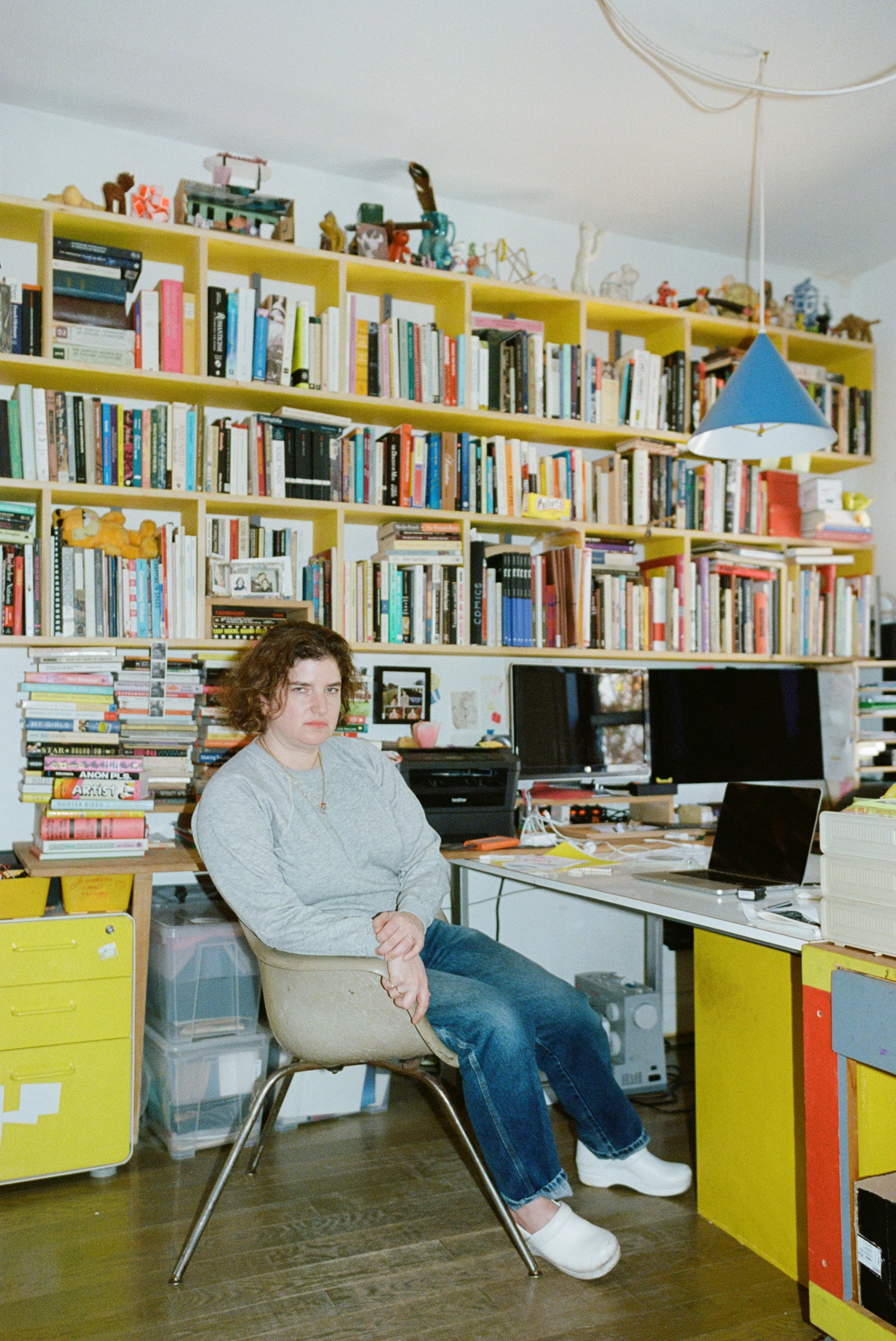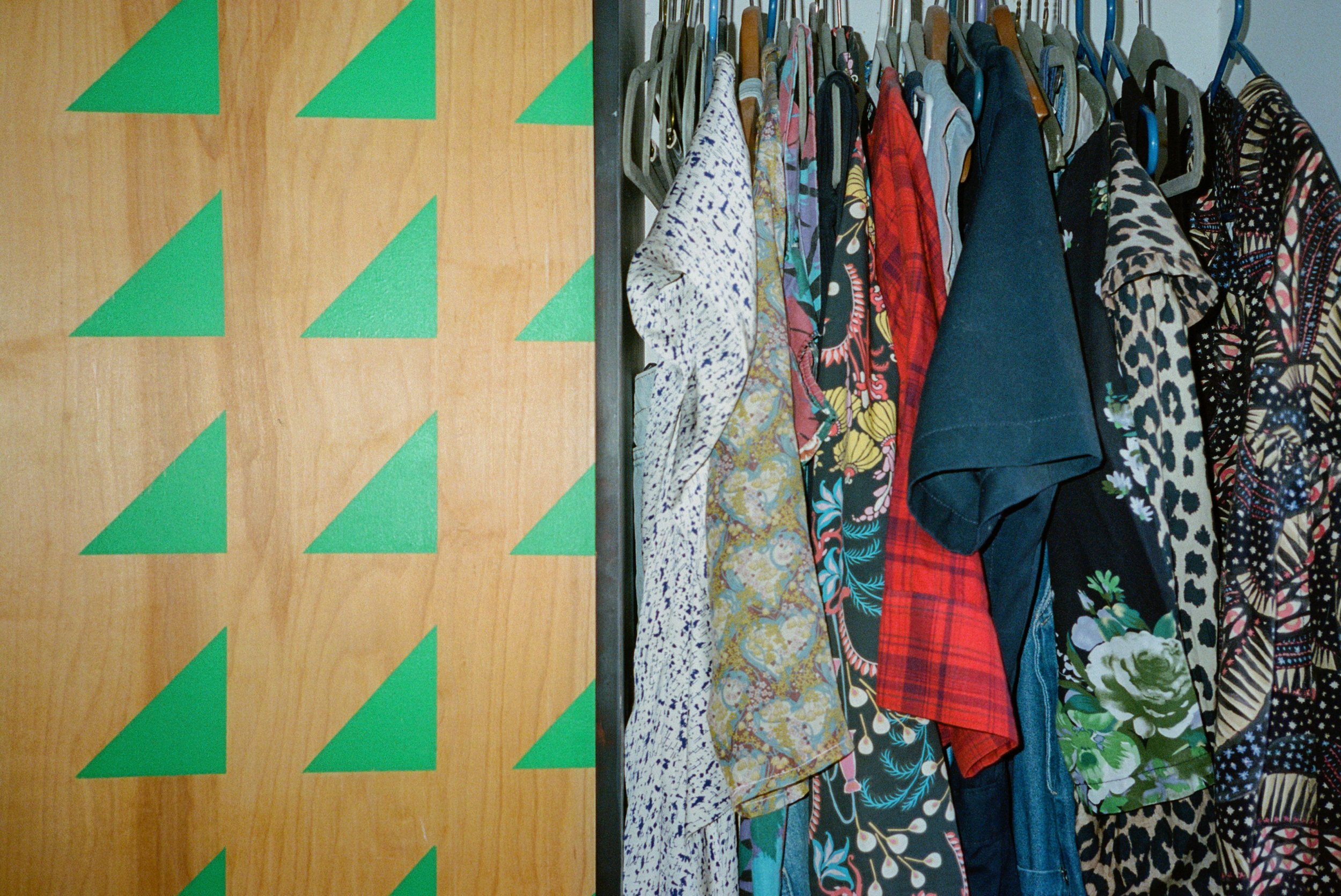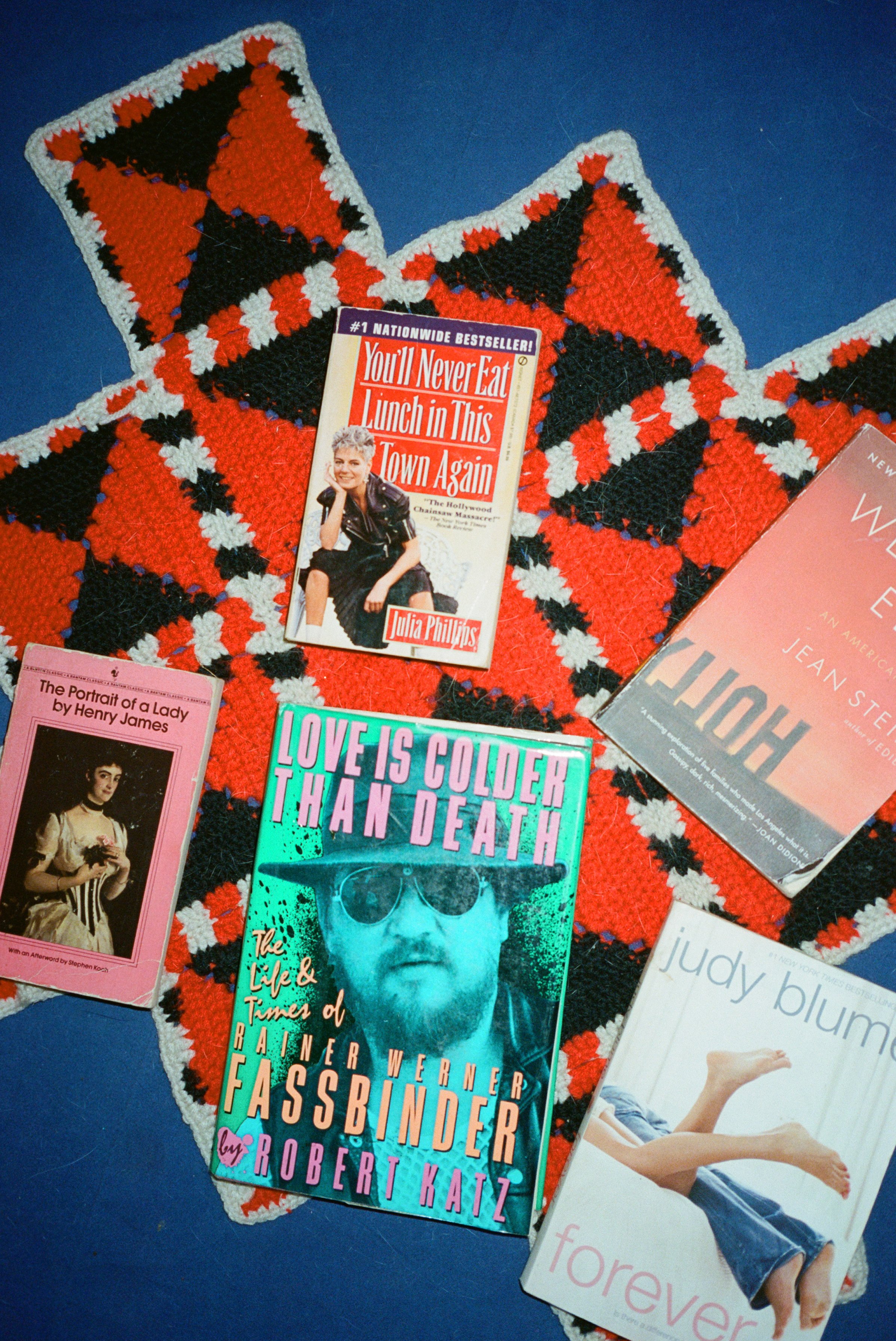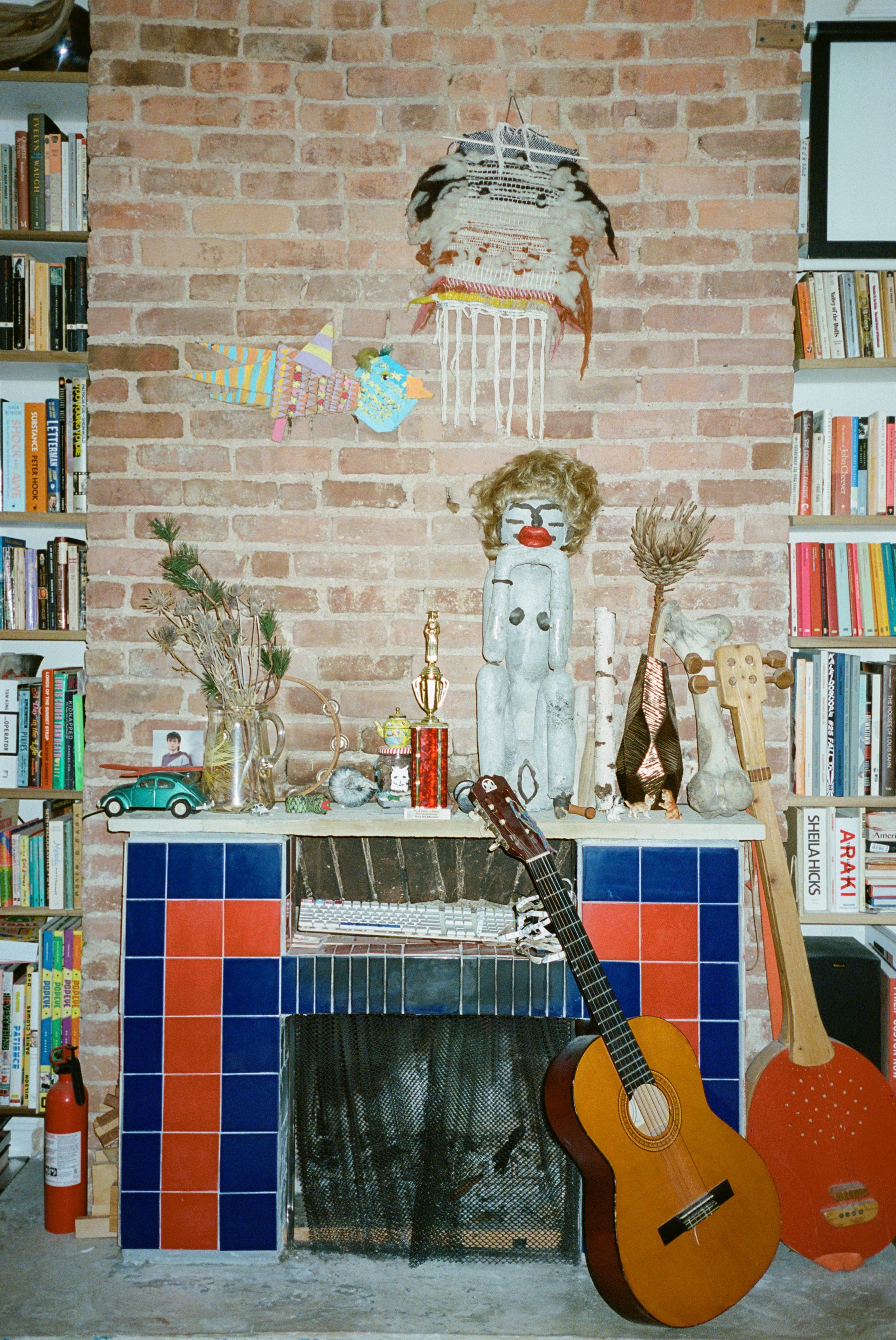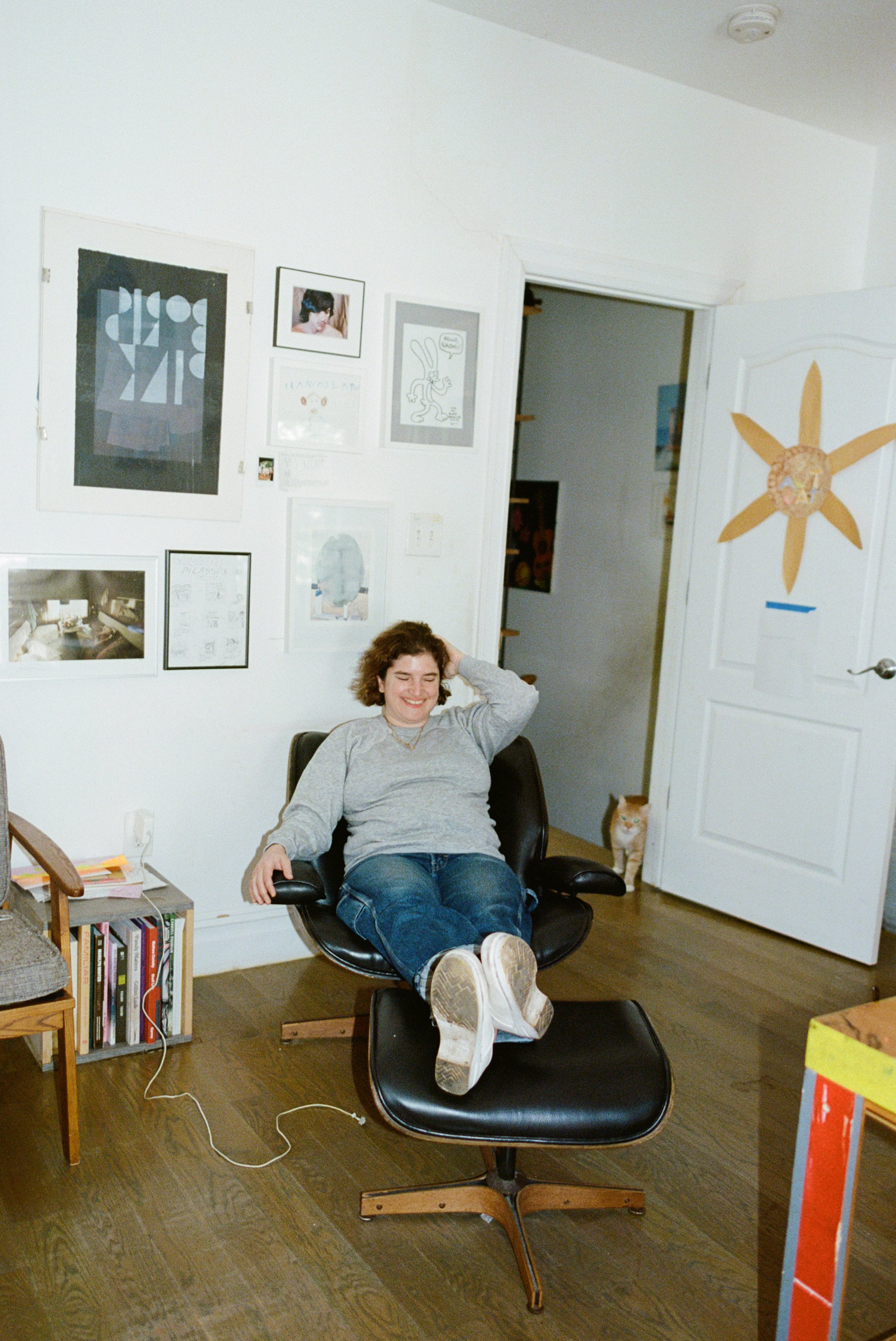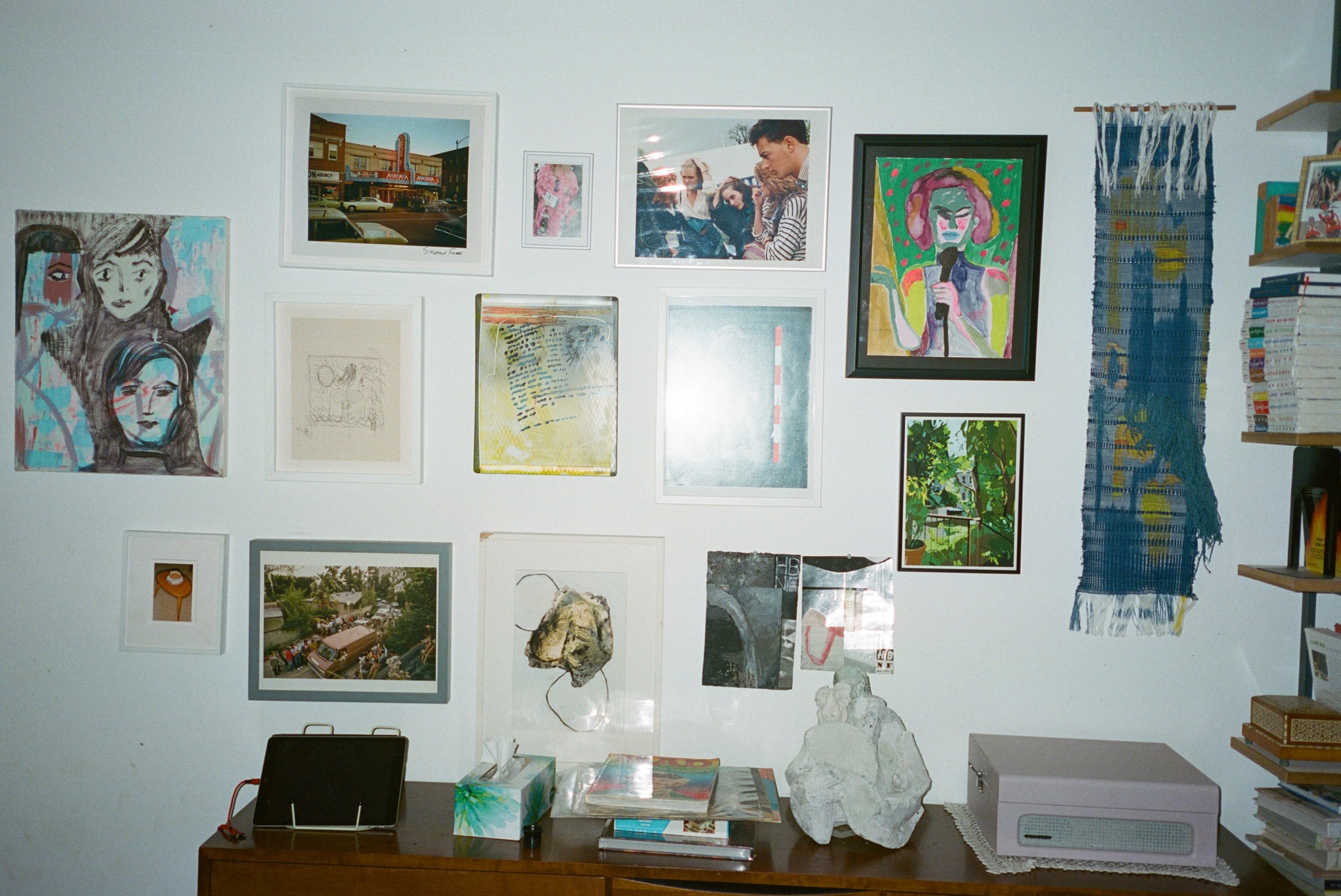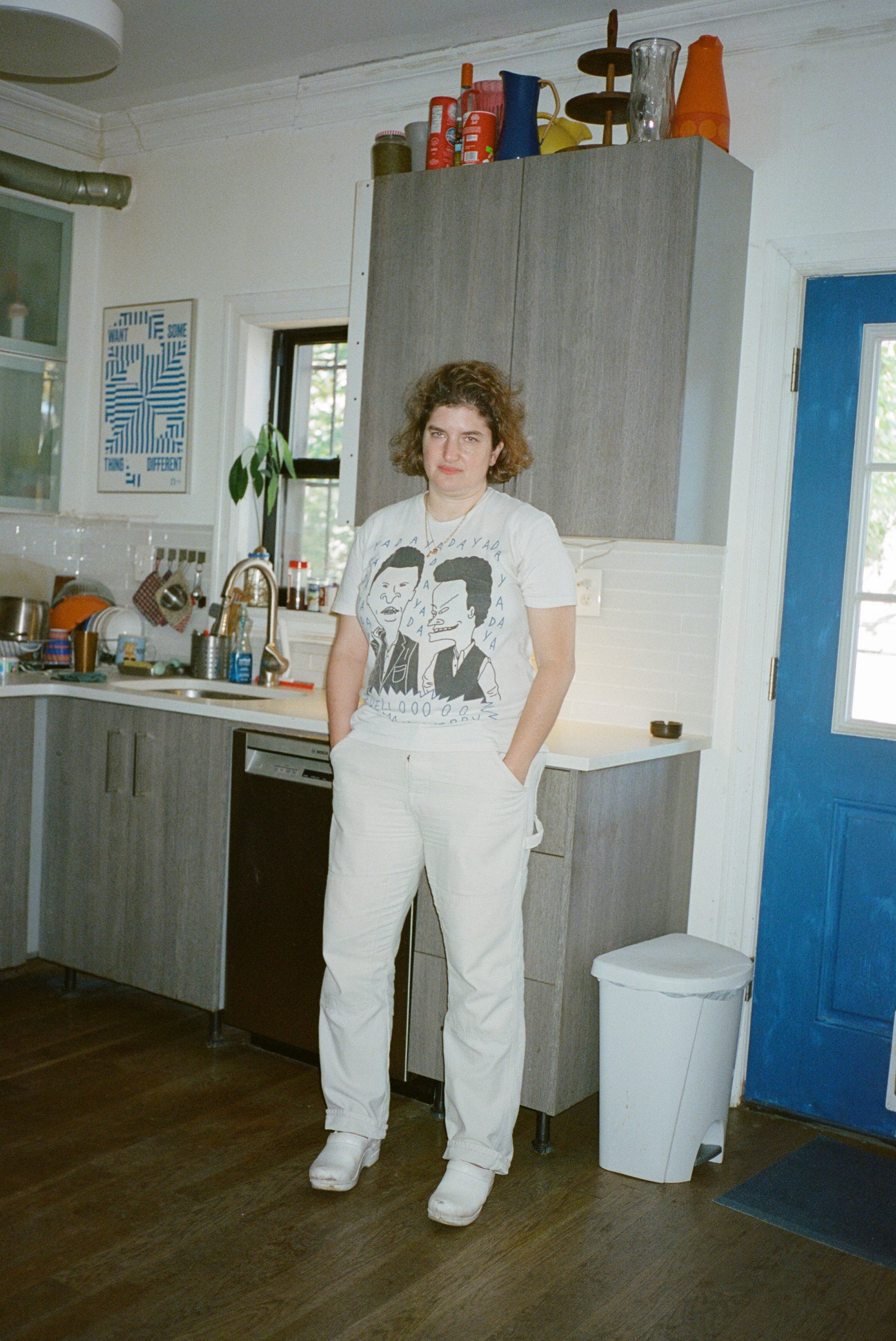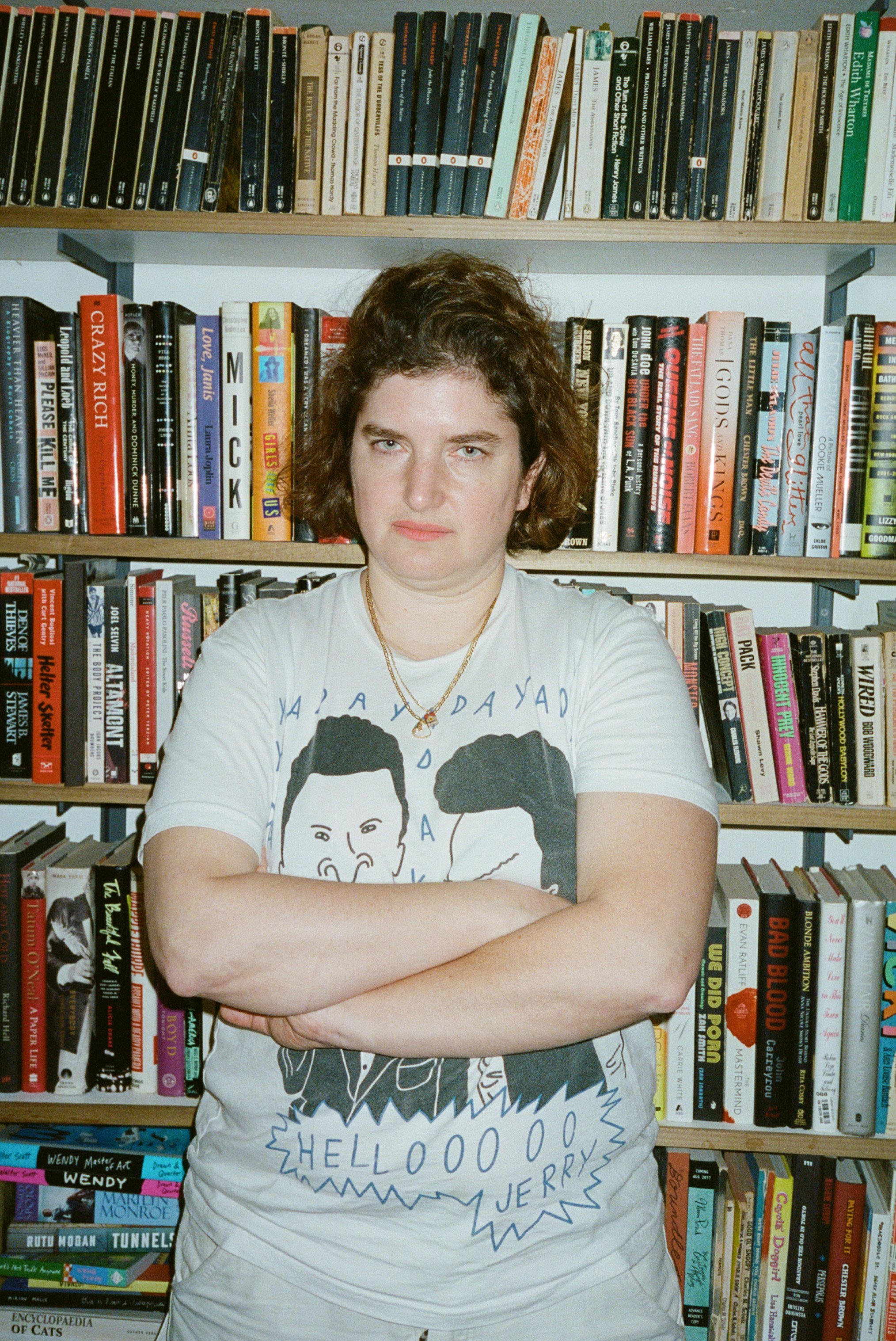If you’ve ever read one of Naomi Fry’s pieces for The New Yorker — or follow her on social media, for that matter — you know that her sense of humor and ability to curate culture into text (from highbrow art all the way to reality tv) is unparalleled. When she isn’t at home spending “too much” time online or writing, she can usually be spotted at her local BedStuy bodega, in downtown Manhattan having dinner with friends, or catching a movie at one of her favorite Brooklyn theatres. In our conversation, she speaks about growing up across two continents, the financial aspects of raising a family in NYC, and why she’ll never quite feel a sense of belonging in America.
♫ Listen to noami’s playlist | ⌨ naomi’s last google search
on her morning routine
Most days, I get up with my daughter, who is eleven. I wash the dishes from the night before and make her breakfast and lunch that she takes with her. Sometimes I drive her to school, but recently she’s started taking the bus on her own, which makes a difference. (On some of the mornings I sleep in and my husband, Ohad, does all this, but usually we’re both up). I make myself coffee to be able to function (I’m partial to Bustello coffee in a stovetop espresso maker) and then I sit down and usually try to start writing. But it probably takes me at least an hour or two of dicking around online before I actually begin getting anything done.
on her bi-continental upbringing and early writing
I was born and grew up in Haifa, Israel, in the 80s and 90s. When I was about four we also started to spend time occasionally in Seattle, where my dad worked off and on, and so, between America and Israel, I had two really different perspectives on what life could look like. In America there was much more of everything, which was very seductive for me at a young age. In both places, however, I remained a fairly anxious child who liked to read and was probably oversensitive.
My parents are both academics: my dad is a biochemist and my mom has a PhD in philosophy of science. When I was growing up, I sort of assumed I’d be an academic, too, although science was never interesting to me; I was always strictly a humanities person. I did write a lot when I was a kid, mostly parodic spoof magazines I made with my friends (I was a bit of a humorist…). But when I was around twelve, along with the self-consciousness of puberty, everything I touched creatively suddenly seemed stupid and I stopped writing completely and didn’t go back to it until I went to college. The looseness and easiness with it that I had as a kid never returned, though. I wish it would.
on the role of books & culture in her life
Reading and thinking about books was always really important to me. It was a way for me to understand the world — this is what people are like, this is what life is like or what it could be — and it was also important to my self-conception. What was I if I wasn’t a reader, if I wasn’t a person who was interested in books and culture? This had to do with a certain level of pretention, but it was also purely emotional. It just felt important and interesting and meaningful. It also provided a way to connect with other people, to identify who I could get along with through shared cultural references. All of this basically hasn’t changed, and through practice and repetition has become the thing I “do” full-time.
on coming to America
I moved to the States two decades ago from Tel Aviv: first to go to grad school at Johns Hopkins in Baltimore to study English literature (I spent half the week there and half in New York because my husband went to Columbia), and then, after dropping out because I realized I didn’t want to finish my dissertation, living full time in Brooklyn. Even though I’m officially an American now, I’ll never feel like I fully belong. That sense of outsiderhood is sometimes painful but also essential and generative, I think. In some ways, America, for me, is still a dream place I really want to belong to, but where I’ll never quite fit in. I’m also obviously aware now of America’s problems in a way I wasn’t as a child. It’s a potent combination of adoration and hate. America has always made me feel a lot.
on odd college jobs and getting her start in media
I had a few jobs while I was still in college: I worked at a weird bookstore, I was an usher at a movie theater, stuff like that. The main longish-term job I had after college was as a translator on the foreign affairs desk at the daily Israeli newspaper Haaretz. I got that job because a girl I went to school with got me an interview. I worked there for two years, doing night shifts, and it was my first job in “media”.
““My weirdest job was definitely as a close-captions translator for cable porn. I did that for a few months, and it was a confusing combination of horny-making and depressing. I’ve talked about this experience anecdotally, but I also want to write about it at some point.””
on the financial aspects of raising a family in New York
It’s almost impossible: basically you either work in finance or whatever, or your parents give you money. When our daughter Nina was born, me and Ohad were both freelancers living in a one-bedroom rental, and we went on staying there until Nina was about four. It was a nice apartment, but definitely too small. We had no idea how things were going to change. Then, my very elderly grandmother died back in Israel. She wasn’t rich but she had saved her entire life and my parents were able to help us put a down payment on a house from the money she had left, which we weren’t expecting. I had also just started my first full-time job at the Times, which allowed us to get a mortgage. Without my parents’ help we would have never been able to get our foot in the door of home ownership. I feel really grateful and lucky, but also mad at how hard this city makes it for people who don’t make a ton of money.
on her approach to home decoration
My husband Ohad is a sculptor. He’s really good with figuring how to arrange things in space, and he’s great with texture and color, too. Just a great eye and great taste. Some of the art on the walls, though, is stuff that I got myself: either that I bought, got as gifts, or traded with artists for writing that I’ve done for them. I have two paintings my friend Issy Wood gave me that I cherish, one of a possum and one of our cats Gully and Gingy. I have a Carroll Dunham sketch that I love. I have an early Garfield strip that I got in an online auction. I have a Martin Parr photo from the 80s that I love, of people at a horse race in England. I have two drawings from Matt Groening that my friend Dan Nadel got me as a gift when I had Nina that would probably be the first objects I’d save if there was (God forbid) a fire. I also have a Julian Wasser photo of the paparazzi outside the Chateau Marmont waiting for the coroner’s van to come out when Belushi died. I love that picture.
““I text and dm with friends all day every day. It’s almost too much, but I get panicked if I don’t keep in touch constantly with people (are they mad at me?). I’m also always torn between going out and staying in. If I go out too much I feel exhausted and off kilter; but if I stay home too much I’m afraid I’ll miss out. It’s hard to find a balance.””
on reclaiming personal power with her writing
I’ve never really written personal essays, but in my critical work I often bring in references to things that have happened to me, or certain feelings that I’ve struggled with. I do this on Twitter, too. Talking limited shit about yourself or revealing something embarrassing is sort of a come-on: it’s like, I know this about myself and if I’m saying it then it means I know there is enough good about me that people can accept the whole package. And if you don’t like it or aren’t charmed by it, then I’m probably not for you.
on her attitude towards aging
My new thing is rebranding getting older as cool, haha. I’m in my forties and it’s ok… I have better taste and more experience and (relatively) more confidence than I had when I was younger. Like, what am I gonna do about getting older? Just keep being funny and cool and knowing stuff and being interested in various things and still making new friends and keeping old friends and not feeling embarrassed about any of it. That is the attempt, at least, I’m not saying it always works.
on what inspires her
My husband, my friends, the love of my parents and sister, having interesting conversations, picking up a book from like 1961 that I’ve never heard about and loving it randomly, meeting new people who I like and connect with, reading funny tweets and laughing, my daughter who is the absolute best.
““The one boundary I was able to create with social media was taking Twitter off my phone a couple of years ago, which has really helped with the amount of time I spend on it. (Unfortunately, I probably make up for it with the time I spend on Instagram instead). I get a lot out of social media: I share my work, I read other people’s work, I keep up with friends, I make jokes, I’ve met a lot of people I now like and love IRL. But there’s no question I spend way too much time on it and that it scrambles my brain and sometimes makes me feel like shit about myself. A classic situation.””
on her favorite books
I just finished Emma Cline’s new novel The Guest that’s coming out in May: really grim but good. I’m reading Rachel Cusk’s The Country Life which is very funny. I also recently read The Goodby Peope by Gavin Lambert, a book about LA in the late sixties, which was just great. I loved Gwendolyn Riley’s My Phantoms which I read earlier this year. Other evergreen favorites include You’ll Never Eat Lunch in This Town Again by Julia Phillips, Love is Colder Than Death: The Life & Tales of Rainer Werner Fassbinder by Robert Katz, The Portrait of a Lady by Henry James, and Forever… by Judy Blume.
on her beauty and health routine
The only makeup I wear with any regularity is a red-orange lipstick, and I have a bunch of different ones in my bag. A Tom Ford one, a Gucci one, a YSL one, a Revlon one I got at the drugstore. And they’re all pretty much the same color.
naomi’s favorite spots in new york
Restaurants & Bars: I like Clandestino, The Odeon, my friend Despot’s Time. Via Carota is delicious.
Museums & Galleries: the Met and Ellie Rines’s gallery 56 Henry (Ohad is going to have a show there soon)
Bookstores: All are recommended, but especially McNally Jackson, Greenlight, and Better Read Than Dead on Broadway in Bushwick and Unnameable Books in Prospect Heights for used
Movie theatres: Metrograph, BAM, or Film Forum
images and interview by clémence polès, edited by claire brodka

